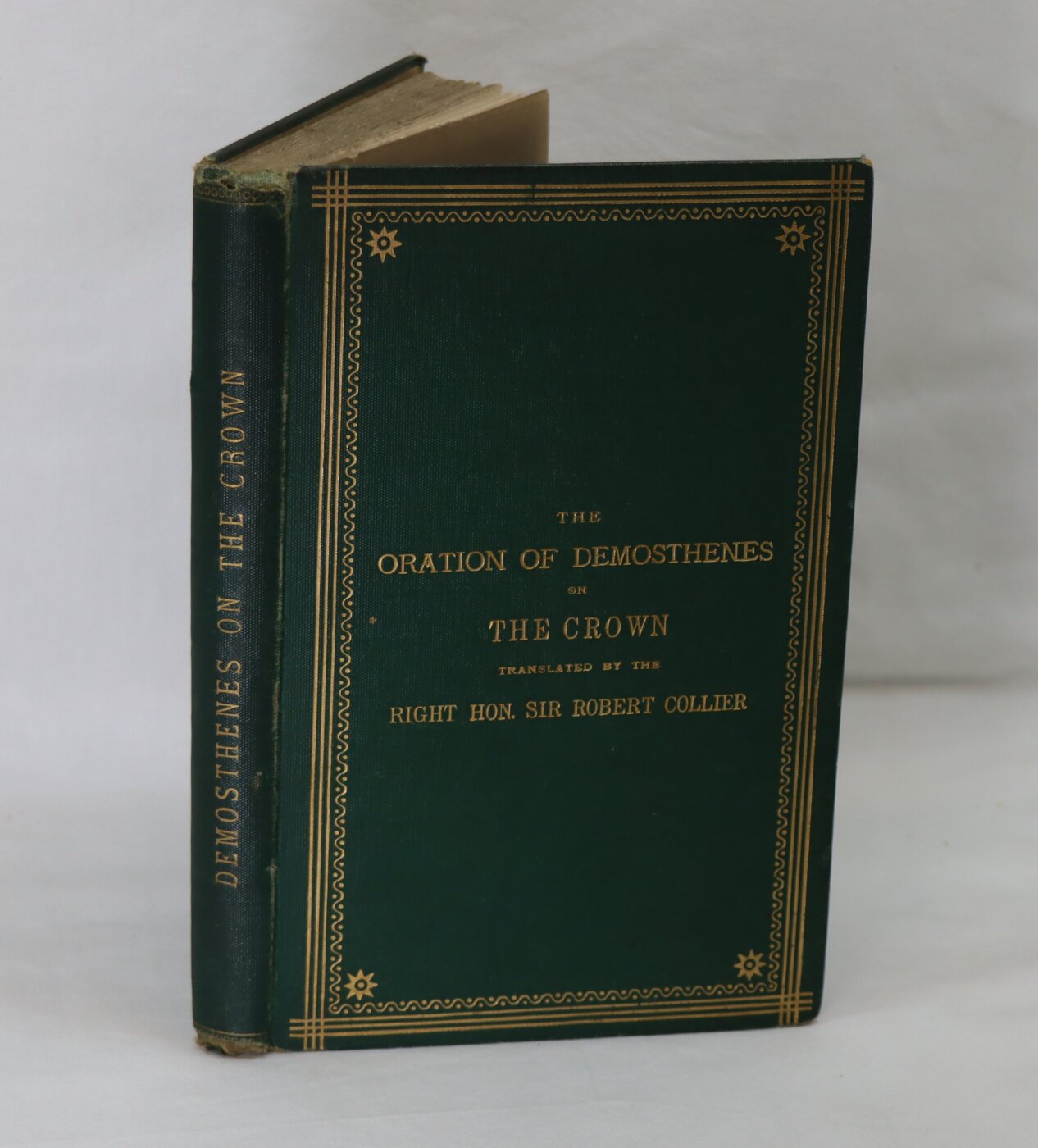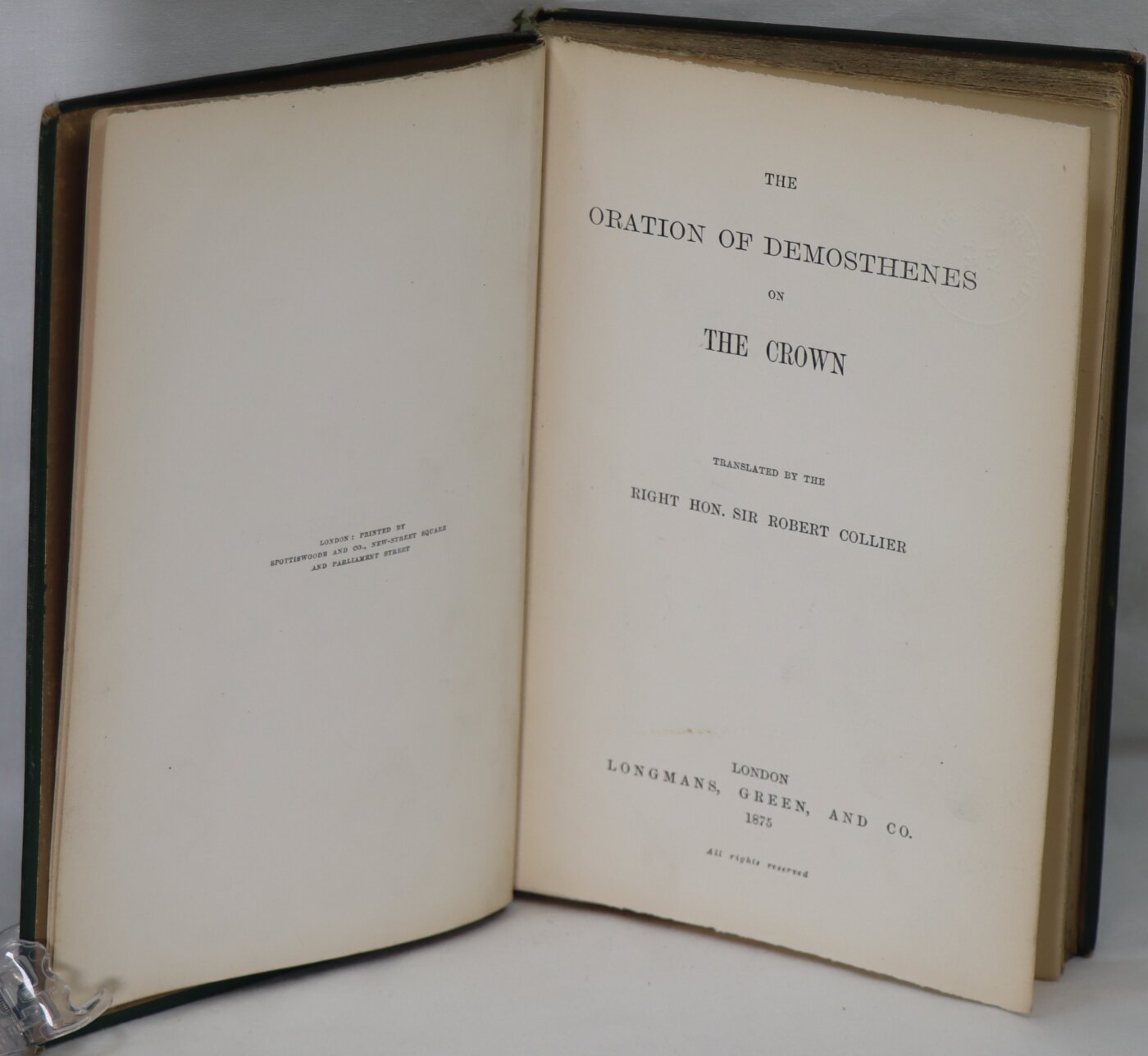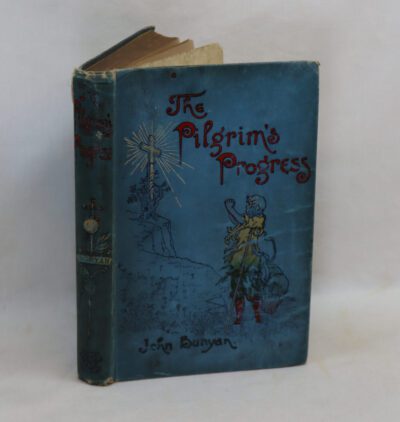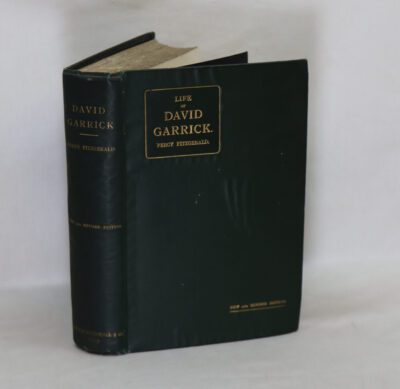The Oration of Demosthenes on the Crown.
By Sir Robert Collier
Printed: 1875
Publisher: Longmans Green & Co. London
| Dimensions | 14 × 21 × 2 cm |
|---|---|
| Language |
Language: English
Size (cminches): 14 x 21 x 2
Condition: Very good (See explanation of ratings)
Item information
Description
Green coth binding with gilt title on the spine and front board.
- We provide an in-depth photographic presentation of this item to stimulate your feeling and touch. More traditional book descriptions are immediately available
- Note: This book carries a £5.00 discount to those that subscribe to the F.B.A. mailing list.
A good First Edition in great reading condition.
Demosthenes (384 – 12 October 322 BC) was a Greek statesman and orator in ancient Athens. His orations constitute a significant expression of contemporary Athenian intellectual prowess and provide insight into the politics and culture of ancient Greece during the 4th century BC. Demosthenes learned rhetoric by studying the speeches of previous great orators. He delivered his first judicial speeches at the age of 20, in which he successfully argued that he should gain from his guardians what was left of his inheritance. For a time, Demosthenes made his living as a professional speechwriter (logographer) and a lawyer, writing speeches for use in private legal suits.
Demosthenes grew interested in politics during his time as a logographer, and in 354 BC he gave his first public political speeches. He went on to devote his most productive years to opposing Macedon’s expansion. He idealized his city and strove throughout his life to restore Athens’ supremacy and motivate his compatriots against Philip II of Macedon. He sought to preserve his city’s freedom and to establish an alliance against Macedon, in an unsuccessful attempt to impede Philip’s plans to expand his influence southward, conquering the Greek states.
After Philip’s death, Demosthenes played a leading part in his city’s uprising against the new king of Macedonia, Alexander the Great. However, his efforts failed, and the revolt was met with a harsh Macedonian reaction. To prevent a similar revolt against his own rule, Alexander’s successor in this region, Antipater, sent his men to track Demosthenes down. Demosthenes killed himself to avoid being arrested by Archias of Thurii, Antipater’s confidant.
The Alexandrian Canon, compiled by Aristophanes of Byzantium and Aristarchus of Samothrace, called Demosthenes one of the ten greatest Attic orators and logographers. Longinus likened Demosthenes to a blazing thunderbolt and argued that he had “perfected to the utmost the tone of lofty speech, living passions, copiousness, readiness, speed.” Quintilian extolled him as lex orandi (“the standard of oratory”). Cicero said of him that inter omnis unus excellat (“one exceeds among all”), and also praised him as “the perfect orator” who lacked nothing.
Despite the unsuccessful ventures against Philip and Alexander, most Athenians still respected Demosthenes, because they shared his sentiments and wished to restore their independence. In 336 BC, the orator Ctesiphon proposed that Athens honour Demosthenes for his services to the city by presenting him, according to custom, with a golden crown. This proposal became a political issue and, in 330 BC, Aeschines prosecuted Ctesiphon on charges of legal irregularities. In his most brilliant speech, On the Crown, Demosthenes effectively defended Ctesiphon and vehemently attacked those who would have preferred peace with Macedon. He was unrepentant about his past actions and policies and insisted that, when in power, the constant aim of his policies was the honour and the ascendancy of his country; and on every occasion and in all business he preserved his loyalty to Athens. He finally defeated Aeschines, although his enemy’s objections, though politically-motivated, to the crowning were arguably valid from a legal point of view.
Want to know more about this item?

Related products
Share this Page with a friend











